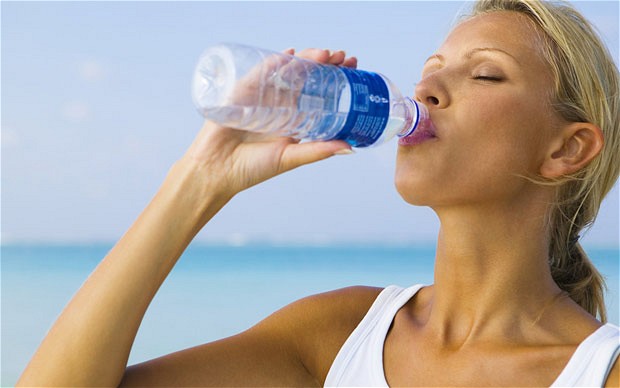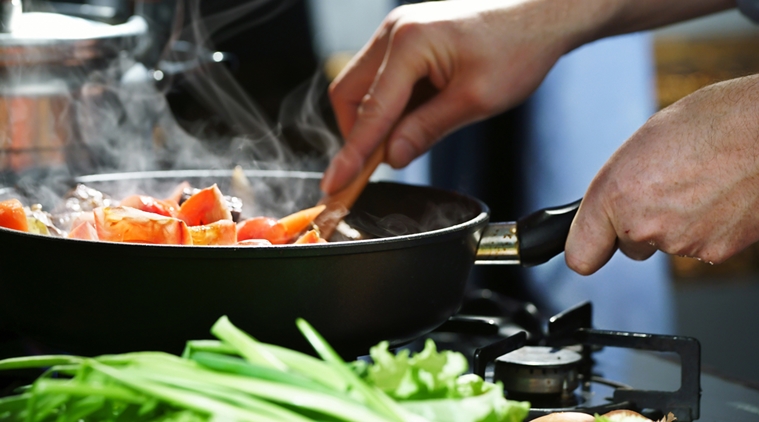
I am not sure how many of you know that hydration and athletic performance is connected? In this blog, I am precisely going to tell you this aspect. Adequate fluid replacement helps maintain hydration and, therefore, promotes the health, safety, and optimal physical performance of individuals participating in the regular physical activity.
Dehydration can compromise athletic performance and increase the risk of exertion heat injury. Athletes do not voluntarily drink sufficient water to prevent dehydration during physical activity.
The two main factors influencing early fatigue and impaired performance (both physical and mental) in all types of sports and exercise are depletion of body levels of Carbohydrate and/or fluid. Fluid replacement is probably the most important nutritional concern for athletes. As an athlete exercise, fluid is lost through the skin as sweat and through lungs when an athlete breathes. If this fluid is not replaced at regular intervals during exercise, the athlete can become dehydrated bringing about metabolic changes.
Hypohydration (total body water below normal) impairs the body’s ability to regulate heat resulting in increased body temperature and an elevated heart rate. Perceived exertion is increased causing the athlete to feel more fatigued than usual at a given work rate. Mental function is reduced which can have negative implications for motor control, decision making and concentration.
Gastric emptying is slowed, resulting in stomach discomfort. All these effects lead to impairment in exercise performance. Most types of exercise are adversely affected by hypohydration, especially when they are undertaken in hot conditions, and negative effects have been detected when fluid deficits are as low as 2 %
Recommended water intake before, during and after sport/workout
Before Sports
Drinking fluids prior to exercise appear to reduce or delay the detrimental effects of dehydration.
- 1 to 2 hours before sports: 4 to 8 ounces of cold water
- 10 to 15 minutes before sports: 4 to 8 ounces of cold water
- A good meal with containing water (e.g. fruits).
During Sports
- Every 20 minutes: 5 to 9 ounces of a sports drink, depending on weight (5 for a child weighing 88 pounds, 9 ounces for a child weighing 132 pounds)
- Any time a child feels thirsty
- Encourage drinking fluids during timeouts and breaks
- Encourage drinking from their own fluid container and avoid sharing with others
- Encourage the ability to drink whenever they want and not to wait until they are told to take a break
- Adjust fluid needs during practice according to the weather, the amount of equipment worn, and practice duration and intensity.
After Sports
Post-exercise hydration should aim to correct any fluid lost during the practice and help the body to recover from the sports activity:
- Within the first 30 minutes after exercise, drink chocolate milk or a specially formulated sports drink containing protein and carbohydrates such as Gatorade G3 Recover. Not only do they hydrate but, the protein helps the body recover from exercise by enhancing muscle repair, and the carbohydrate replenishes glycogen stores in muscles, which are a source of fuel during prolonged exercise of an hour or more.
- Within two hours: 20-24 ounces of a sports drink for every pound (16 ounces) of weight loss
- Replace all fluids lost during exercise plus any lost after exercise through urination
- Eat a good meal with foods containing water
Given the above before, during and after sports water intake recommendations, one should follow these properly for healthy and active life
Proper hydration is the cornerstone of athletic excellence. Understanding the connection between fluid balance and performance can significantly enhance your physical and mental well-being during sports activities. Follow these recommended water intake strategies to fuel your body for peak performance and sustained health. For further information or guidance, reach out to our certified experts by subscribing to GOQii’s Personalised Health Coaching here.
#BeTheForce
 How many times have you pulled out food from the fridge and pushed it directly in the microwave? It’s convenient, it’s easy and saves a lot of time. Apart from reheating, microwaves are used for cooking and baking – all without burning or creating any mess. But with great convenience, comes even greater risks. Studies have concluded that microwaves can make our food radioactive! This increases the risk of cancer along with other health hazards.
How many times have you pulled out food from the fridge and pushed it directly in the microwave? It’s convenient, it’s easy and saves a lot of time. Apart from reheating, microwaves are used for cooking and baking – all without burning or creating any mess. But with great convenience, comes even greater risks. Studies have concluded that microwaves can make our food radioactive! This increases the risk of cancer along with other health hazards.




